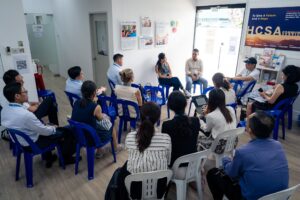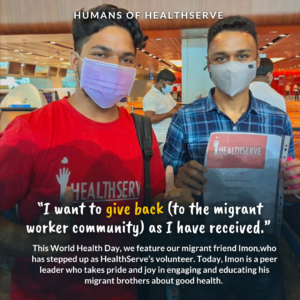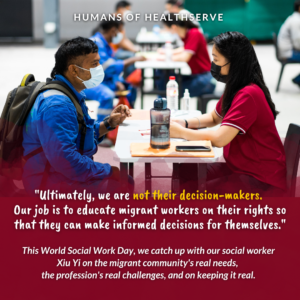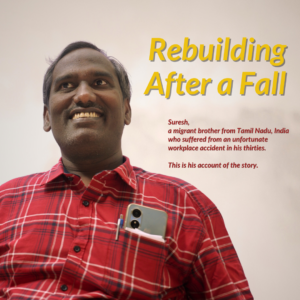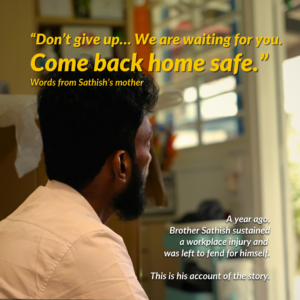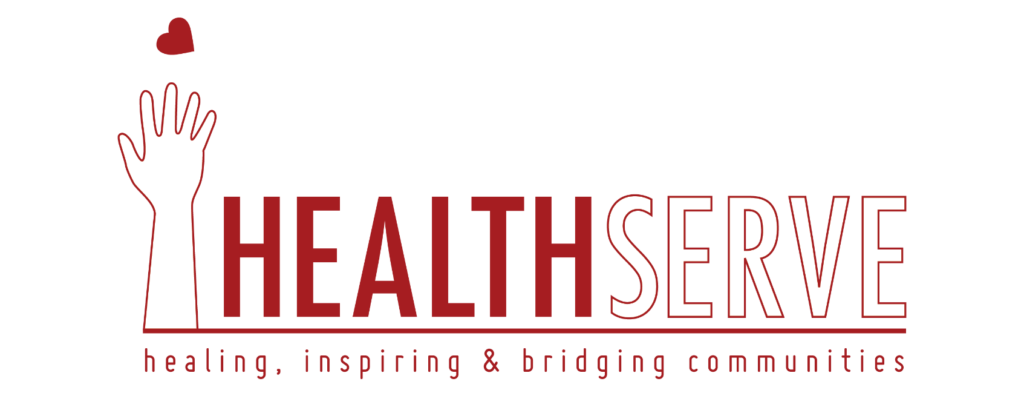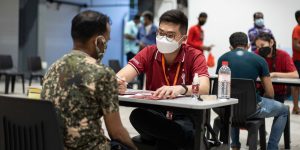
“应该是和平共生,和平相处,没有谁歧视谁” (‘There is no need for discrimination, we should live together peacefully and work together’ in English), Mr Pu explains that while he has not personally experienced any discrimination in Singapore, he has seen negative comments about migrant workers online about how they are stealing jobs away from locals.
Mr Pu came to Singapore in December 2019, and had gotten a job as a manager at a Chinese restaurant. Two months into the job, he filed a case with MOM to report salary issues. As a result, his status from an S-Pass holder changed to a Special Pass holder where he was unable to work while fighting a case. He was moved to stay in a MOM sanctioned dormitory in April, where he shared that when COVID-19 hit, he experienced living conditions that felt claustrophobic to him.
He had first resided in a large room he shared with others. However, because of precautions implemented due to the spread of COVID-19, he was taken to do a swab test and had to be moved out of the room and placed in a small makeshift container area with other migrant workers for a couple of weeks. While he was not COVID-19 positive, he felt imprisoned as he was confined within the container area unable to go out. Following this, he was then moved from the container to the room again, where he was able to move around the blocks a bit more but with restrictions. Mr Pu says the one thing that pulled him through the difficult period, was when our caseworkers at HealthServe would visit him or call to check on him.
As cases started to clear in the dormitory he was moved to another facility where he was finally able to go out and meet some of the caseworkers. He said having a relationship with HealthServe was more important to him than the support of food and snacks. While the living environment took a major toll on his mental health, he was grateful to HealthServe for offering the emotional security that he needed.
In particular, he had first met Jeffrey, a HealthServe staff during our dormitory visits, and Jeffrey was able to assist him with some daily necessities. It was then that he realised he was not alone, and could depend on the people that reached out to him.

“He was at the containers of the dormitories – two persons per container, quite small. Toilets were not clean and were outside. Claustrophobic feeling. Fear of Covid-19 was very high”, Jeffrey recalled. Thankful for the support he received, Mr Pu wanted to give back and would sometimes accompany our caseworkers to distribute food.
Just before his case was resolved and he was repatriated to China in January 2021, he had the opportunity to volunteer on an outing to Coney Island to provide support to other migrant worker Special Pass holders who were confined to their dormitories for months, this he said was his happiest memory.
